US supermarket scene will stun Aussies who do their grocery shopping at Coles, Woolworths
It looks like an ordinary photo of a packed supermarket in the heart of NYC. But one hidden detail will stun Aussies who do their grocery shopping at Coles and Woolies.
It’s 6pm at Trader Joe’s in midtown Manhattan and there’s a line snaking around the supermarket all the way to the escalator entrance.
Twenty – yes, 20 - registers are all manned by enthusiastic cashiers who hold up a paddle when they’re ready for their next customer.
There’s one employee holding a giant stick with a sign reading ‘end of line’ just to inform shoppers where the ever-growing queue begins.
Another worker is in charge of directing the queue across busy aisles in the store, and another still at the front of the queue keeping track of free registers.
There’s also a worker greeting customers at the door, a couple more organising trolleys and 20-odd staff milling about the rammed underground store refilling stock.
But there’s one thing missing from the US supermarket that makes the entire experience even more alien than it already is for an Aussie travelling abroad: self-serve checkouts.
Trader Joe’s, an upmarket grocery chain with 571 stores, is one of a number of US supermarket giants deliberately choosing to forgo technology and focus on customer service.
It’s a stark change to Down Under, where giants Coles and Woolworths are going all in on tech and slashing customer-facing roles by the day.
Even budget chain Aldi has reluctantly followed suit, as Australia goes big on surveillance with rooftop sensors, self-service spying cameras and automatic gates at some checkout points.
It begs the question: is America just one step behind Australia, or are they onto something?
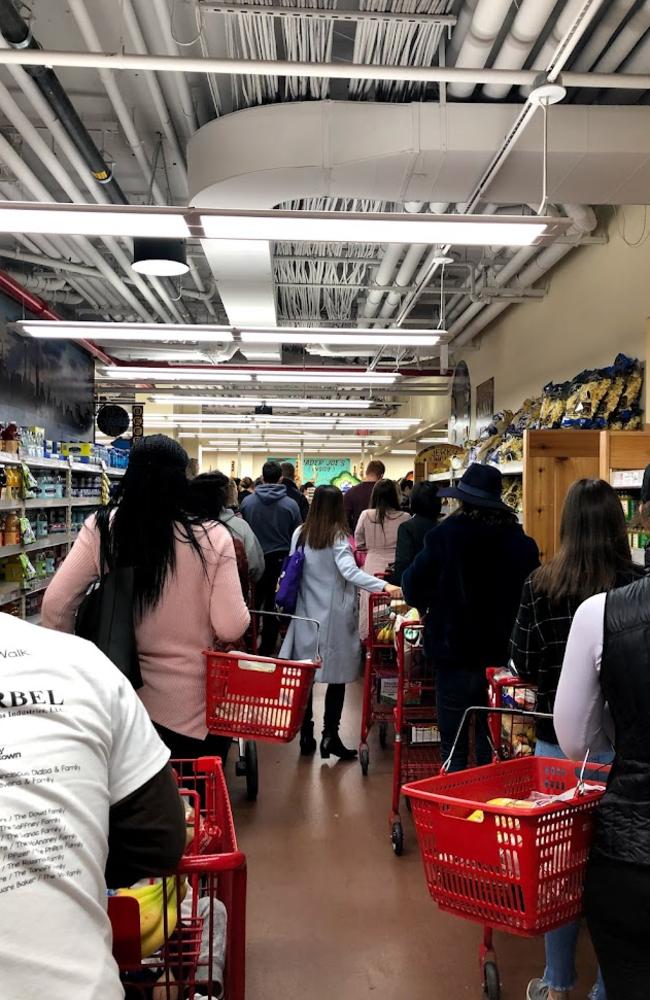
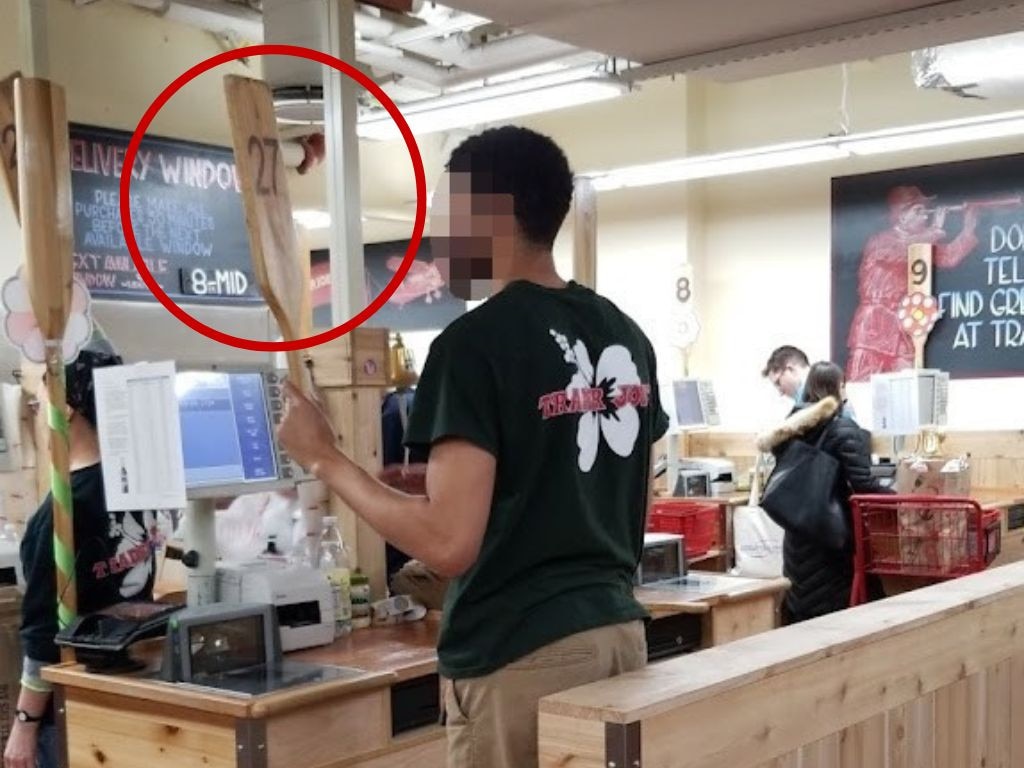
America falls out of love with self-serve
Trader Joe’s is not an anomaly when it comes to ditching self-serve in America.
Despite investing hundreds of millions of dollars into the technology, many of the big US chains have pulled back on self-serve in recent years.
Discount department store chain Target – which also offers groceries in America - has restricted the number of items self-serve checkout customers can purchase to 10.
Retail giant Walmart has removed self-checkout kiosks in some stores entirely, and is pitching it as a membership perk for a quick checkout in others.
Dollar General, which went all in on self-checkout tech in 2022 and has a staggering 20,000 stores across the country, has pulled a complete 180 in recent months.
The retail behemoth has already converted 9,000 stores away from self-checkout. Another 3,000 stores were stripped of their self-checkout lanes in May.
Experts say there’s one main reason for the backflip: theft.
Leading grocery industry analyst Phil Lempert said the impact of ‘shrink’ in America – industry speak for shoplifting – was “huge”.
“Grocers that I talk to tell me off the record that shrink is three to four times higher since the pandemic on self-checkout,” he told news.com.au.
“Lots of people are tricking the machine and scanning cheaper items that have similar weight to the actual item they are purchasing”.
And while Australia is doubling down by investing in surveillance to minimise theft, America seems to be going the other way.
Santiago Gallino, an associate professor of operations, information and decisions at Wharton School, said America’s low wages made it “less urgent for businesses to adopt costly self-checkout systems”.
“The return on investment for these machines might not be as attractive when labour costs are comparatively low,” he told news.com.au.
“Self-checkout machines require ongoing maintenance, updates, and supervision, which adds to the cost.”
The federal minimum wage in the United States is US$7.25 (AU$10.70) an hour compared to AU$24.10 in Australia, although a number of states have higher standards they enforce.

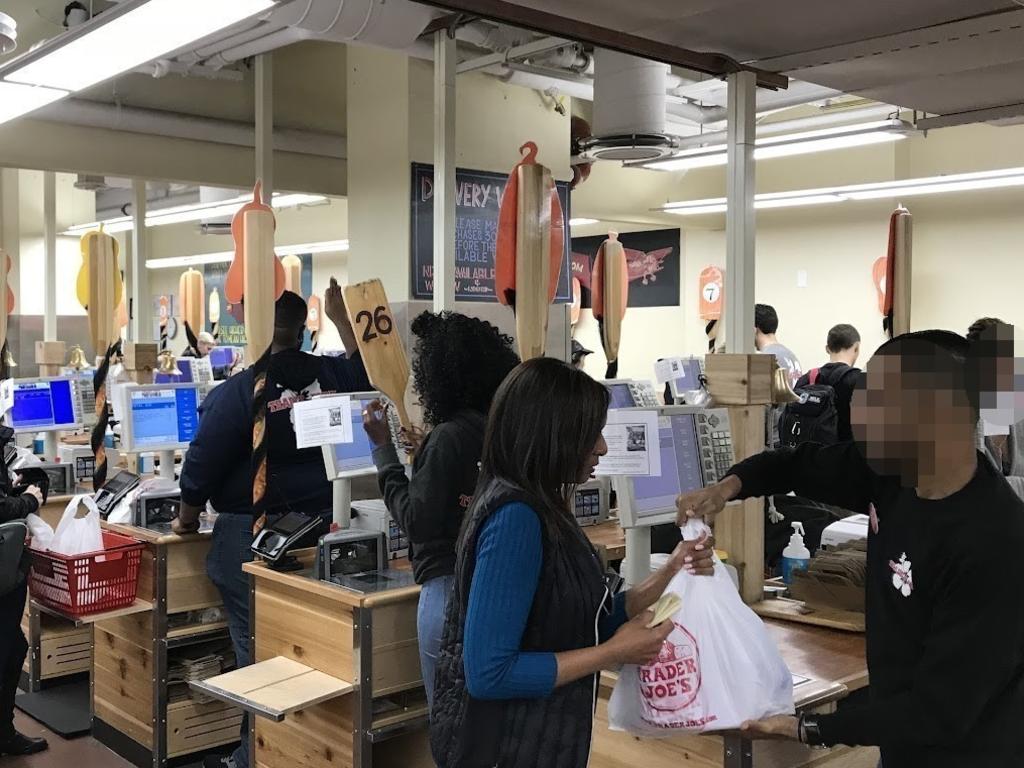
Why Trader Joe’s refuses to trial self-service
In a company podcast last year, the president and vice chief executive officer of Trader Joe’s said the chain had no plans of adding self-checkout kiosks to its stores.
“We believe in people. We’re not trying to get rid of our crew members for efficiency’s sake,” Jon Basalone said.
He said he found the technology to be confusing, pointing to a recent experience he had at another store.
“I was in a store, and I couldn’t get the thing to scan… and then the person came over and was trying to explain to me,” he recalled.
“I’m like, I do this for a living and I can’t get this thing to work.”
Trader Joe’s CEO Bryan Palbaum agreed.
“It’s (self-serve) not fun,” he said on the podcast.
“I have fun bagging groceries and working at the register. Self-checkout is work. I don’t want that.
Americans just don’t like machines
Recent polling for Newsweek found that 43 per cent of Americans supported the removal of self-checkouts from retail stores.
A majority of the 2,500 people polled in June said the main reason they disliked self-checkout technology was because it took away another person’s job (62 per cent).
Almost half of the respondents said they preferred to speak to a person and 27 per cent took issue with machines not taking cash.
Professor Santiago said Americans had “mixed feelings” about self-checkout.
“While some appreciate the speed and convenience, others find the technology frustrating, especially when there are issues like item scanning errors or needing assistance with age-restricted items”.
He said retailers like Trader Joe’s were making a deliberate decision to prioritise a “customer-centric shopping experience”.
“For these companies, the personal interaction between staff and customers is a key part of their brand identity, which they believe could be diminished with self-checkouts.”
Mr Lempert agreed, stressing the importance of customer experience in America.
“The checkout is the last touch point for the store – and especially with grocery prices as high as they are – having someone verbally thank you is a plus.”

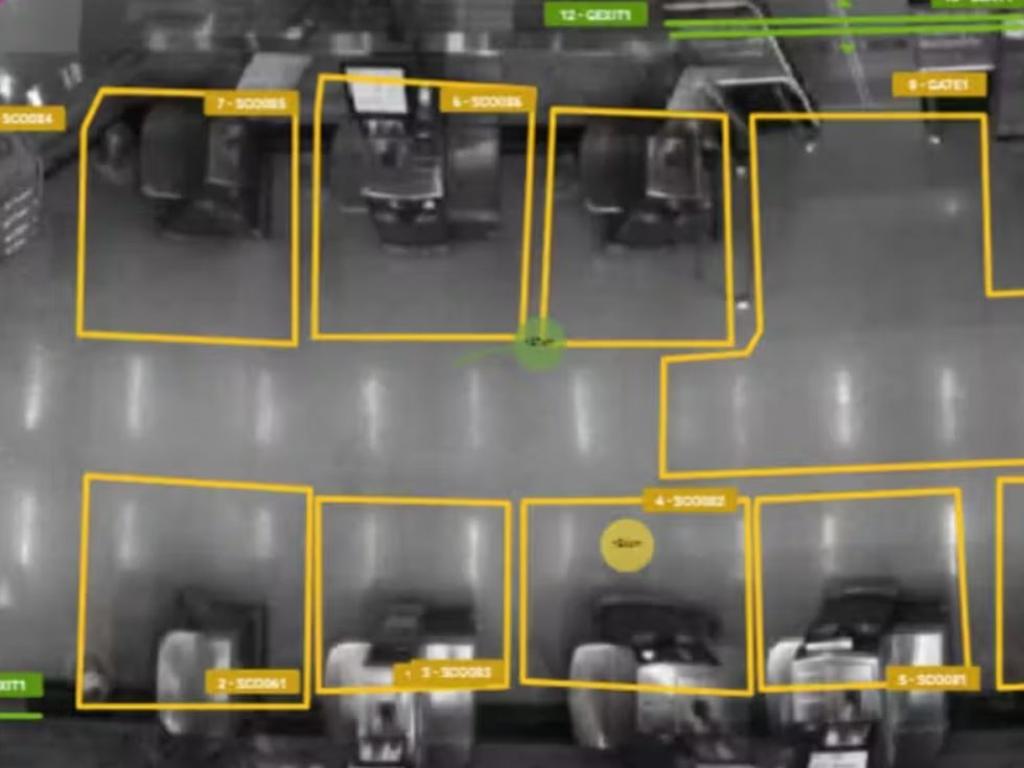
Aussies fed-up with being “treated like criminals”
The system is far from perfect in Australia.
In a bid to crack down on surging theft, the nation’s major supermarkets have been accused of treating customers like thieves by rapidly expanding high-tech surveillance inside stores.
Coles and Woolworths have rolled out ceiling cameras that assign a digital ID to each shopper and track them as they move around the self-checkout area.
Both have begun installing “smart” exit gates that prevent customers from leaving the self-serve checkout area until a purchase is verified.
They’ve also struck deals with a New Zealand start-up called Auror, a retail crime intelligence platform named after the magic police from the Harry Potter series.
Using CCTV data – like gender, distinguishing features, age and build – the software can notify stores when shoplifting suspects come back, in a bid to prevent crimes from happening.
Lauren Kelly, a PhD candidate in the Australian Research Council’s Centre of Excellence for Automated Decision-Making and Society at RMIT University, warned about the risk of pushing surveillance too far.
“These heavy-handed measures seek to make self-service checkouts more secure without increasing staff numbers,” Ms Kelly wrote in The Conversation earlier this year.
“This leads to something of a vicious cycle, as under-staffing, self-checkouts, and high prices are often causes of customer aggression to begin with.
“Many staff are similarly frustrated by historical wage theft by the supermarkets that totals hundreds of millions of dollars.”
She said the surveillance measures “treat every customer as a potential thief”.
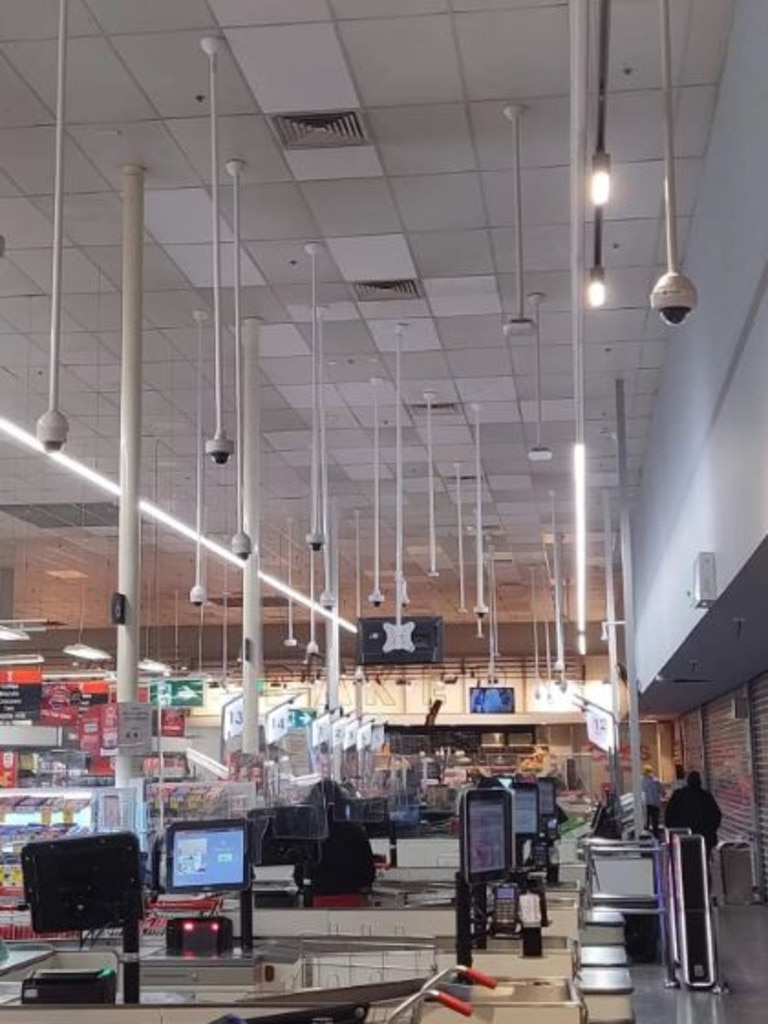

In a statement to news.com.au earlier this year, Coles defended its security measures.
“The safety of our team members and customers is our top priority, and we have a range of security measures in place to reduce theft from our stores including security personnel and surveillance technologies such as CCTV.
“Some of our cameras, such as the ones that display a live feed of the customer on their self-service screen as the complete their shop, do not record or collect personal information. Any CCTV footage that is recorded, is done so in line with all relevant laws and Coles’ Privacy Policy.
“Like most businesses and public spaces, we use surveillance technologies in accordance with stringent privacy laws, and we have strict protocols in place around access to the footage.”
Woolworths also backed its surveillance.
“We have a number of initiatives that we use, both covert and overt, to help reduce retail crime which currently mirrors a level that we experienced prior to the Covid-19 pandemic,” a spokesperson said.
“These initiatives include the use of camera technology at the check-outs, double welcome gates, CCTV and a trial of gates at the exit to our self-serve checkout area.
“We also continue reviewing our health and safety controls to ensure we’re doing everything we can to keep our team and customers safe in our stores, and this remains our absolute priority.
“We use technology such as team safety cameras and VR Training modules to both support and prepare our team members for instances where they may feel unsafe.”

The future of grocery shopping in America, Australia
Experts are divided about the future of grocery shopping in America and Australia.
Queensland University of Technology Business School retail expert Professor Gary Mortimer predicted delivery services would become a new point of emphasis.
“As online grocery shopping continues to increase US retailers may ‘shift’ or ‘re-allocate’ roles from the front of the store to online picking and packing,” he told news.com.au.
“This would mean the introduction of self-serve technologies.”
He said Coles and Woolworths’ annual reports, both released this week, indicated online shopping services had grown by over 20 per cent.
Professor Mortimer said it was likely Aussie supermarkets would stick with self-serve checkouts and eventually expand to new technologies including “smart carts” and “just walk-out tech”.
Grocery guru Phil Lempert predicted those technologies would “replace” self-checkout in America.
Associate professor Gallino predicted American retail chains would likely have a more “balanced approach” to self-serve in the future rather than a “wholesale shift”.
“Retailers are likely to continue experimenting with self-checkout, particularly in areas where labour costs are higher or where consumer demand for quick transactions is stronger,” he said.
“Some stores may adopt hybrid models, offering both self-service and staffed checkout lanes to cater to different customer preferences.”




